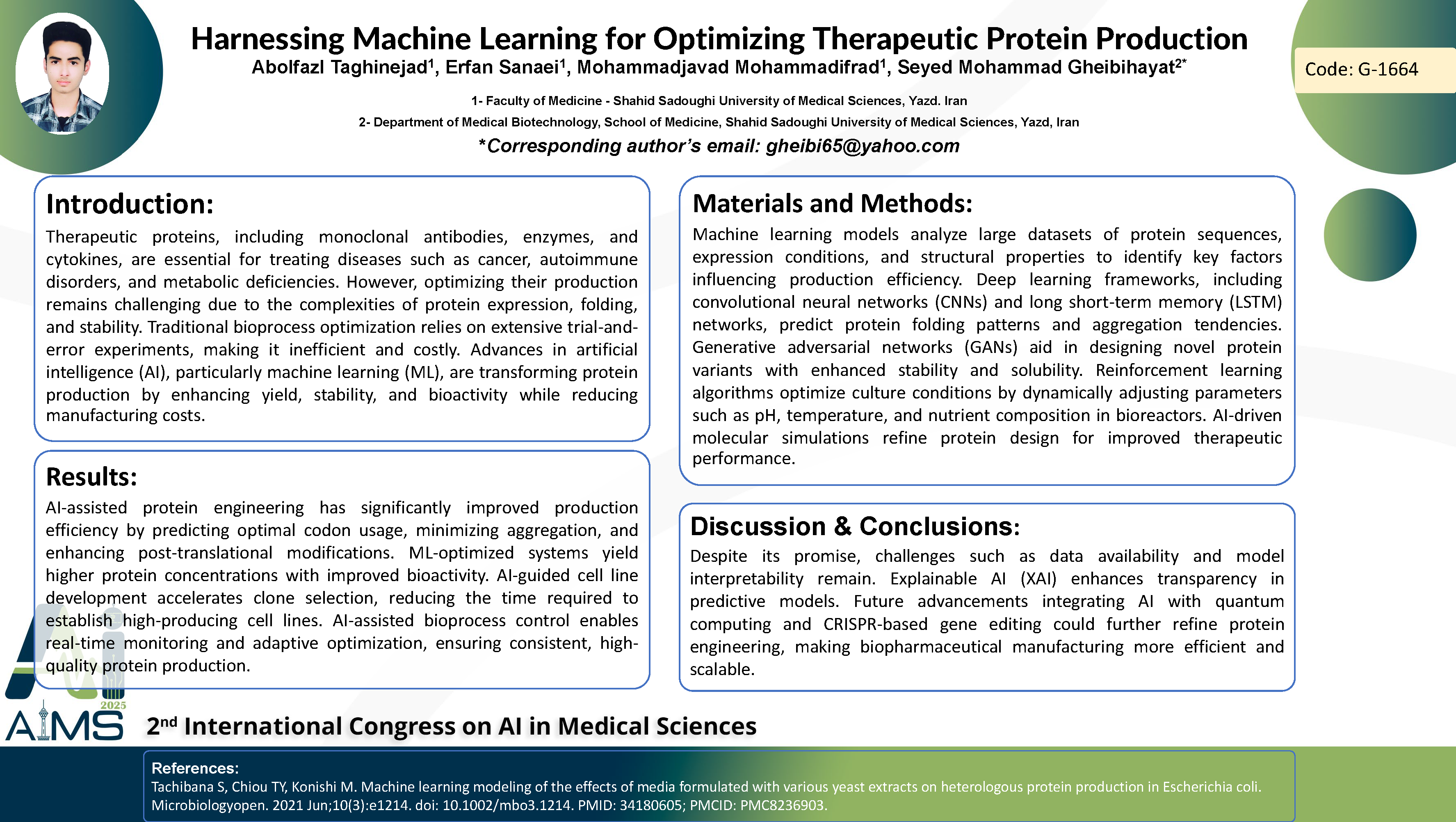بهینهسازی تولید پروتئینهای درمانی با بهرهگیری از یادگیری ماشین
کد: G-1664
نویسندگان: Abolfazl Taghinejad ℗, Erfan Sanaei, Mohammadjavad Mohammdifard, Seyed Mohammad Gheibihayat *
زمان بندی: زمان بندی نشده!
برچسب: کشف و طراحی دارو
دانلود: دانلود پوستر
خلاصه مقاله:
خلاصه مقاله
Introduction: Therapeutic proteins, including monoclonal antibodies, enzymes, and cytokines, are essential for treating diseases such as cancer, autoimmune disorders, and metabolic deficiencies. However, optimizing their production remains challenging due to the complexities of protein expression, folding, and stability. Traditional bioprocess optimization relies on extensive trial-and-error experiments, making it inefficient and costly. Advances in artificial intelligence (AI), particularly machine learning (ML), are transforming protein production by enhancing yield, stability, and bioactivity while reducing manufacturing costs. Methods: Machine learning models analyze large datasets of protein sequences, expression conditions, and structural properties to identify key factors influencing production efficiency. Deep learning frameworks, including convolutional neural networks (CNNs) and long short-term memory (LSTM) networks, predict protein folding patterns and aggregation tendencies. Generative adversarial networks (GANs) aid in designing novel protein variants with enhanced stability and solubility. Reinforcement learning algorithms optimize culture conditions by dynamically adjusting parameters such as pH, temperature, and nutrient composition in bioreactors. AI-driven molecular simulations refine protein design for improved therapeutic performance. Results: AI-assisted protein engineering has significantly improved production efficiency by predicting optimal codon usage, minimizing aggregation, and enhancing post-translational modifications. ML-optimized systems yield higher protein concentrations with improved bioactivity. AI-guided cell line development accelerates clone selection, reducing the time required to establish high-producing cell lines. AI-assisted bioprocess control enables real-time monitoring and adaptive optimization, ensuring consistent, high-quality protein production. Conclusions: Despite its promise, challenges such as data availability and model interpretability remain. Explainable AI (XAI) enhances transparency in predictive models. Future advancements integrating AI with quantum computing and CRISPR-based gene editing could further refine protein engineering, making biopharmaceutical manufacturing more efficient and scalable.
کلمات کلیدی
Machine Learning, Protein Engineering, Therapeutic Proteins
